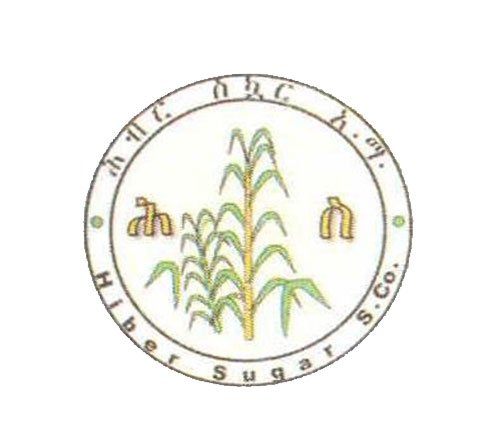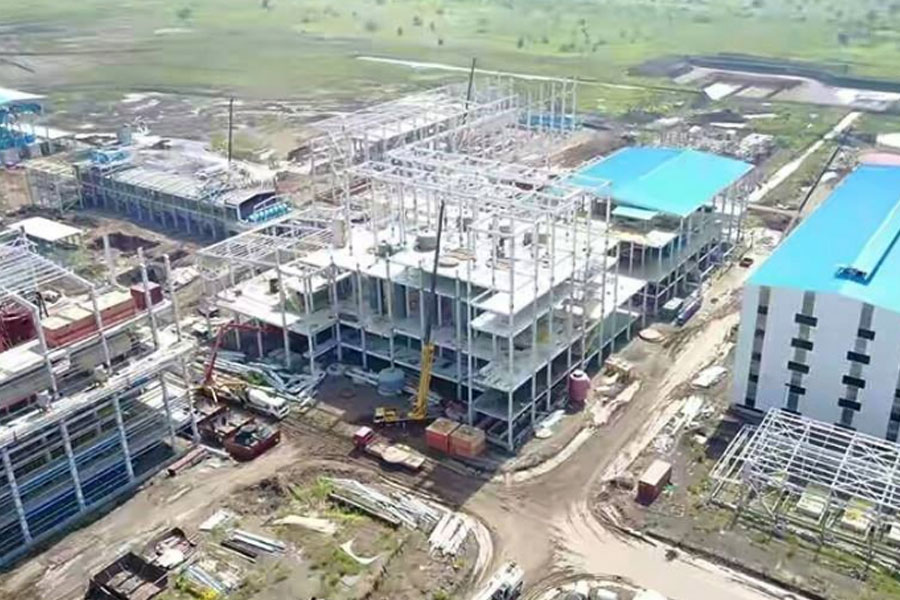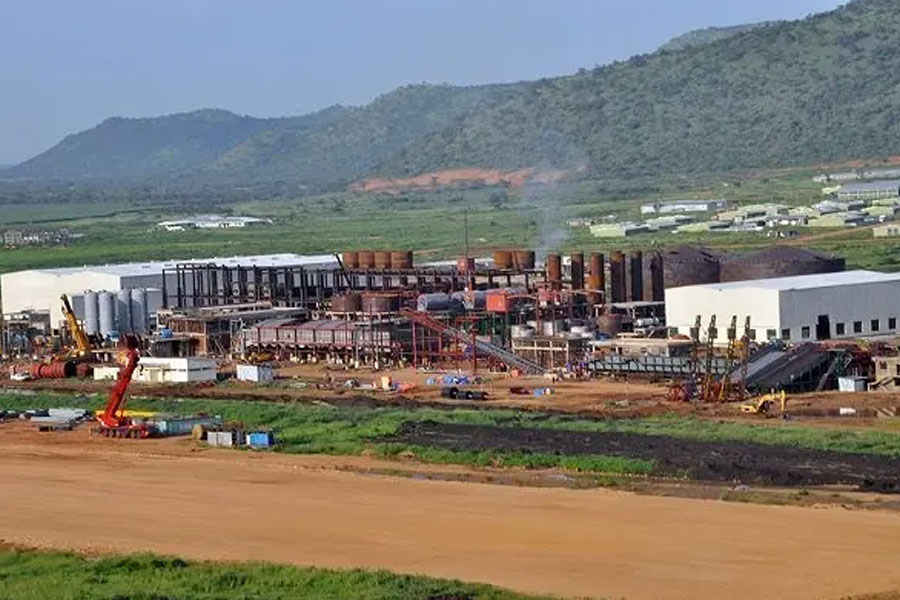
Millions of dollars worth of machinery have been collecting dust for nearly three years after a Chinese contractor suspended the half-a-billion-dollar construction of a sugar plant in the Omo Valley.
The Omo Kuraz V, a project designed to process 24,000Qtls of sugar cane a day, has been on hold as the primary creditor stalled loan disbursements to the contractor, Jianglian International Engineering Co. Ltd. (JJIEC). The contractor had won the bid in 2013 to complete the engineering, procurement and construction works for the 550 million dollar project, financed with a loan from the Industrial & Commercial Bank of China (ICBC), one of China's four biggest state-owned commercial banks.
Former Chairman of ICBC Jiang Jianqing had signed an agreement with then Finance Minister Sufian Ahmed in 2015, which included the provision of export credit to Omo Kuraz V. The Bank was leveraging its global network to facilitate the "One Belt One Road" and "Going Global" initiatives by financing large-scale infrastructure projects during the period. It has considerable financial interests in Africa, including a 20pc stake in the continent's largest bank in assets, Standard Bank of South Africa.
The Omo Kuraz V project is part of a set of four sugar estates under development in the Omo Basin. Omo Kuraz II and III, built by another state-owned Chinese firm, China National Complete Plant Import Export Corporation (COMPLANT), have begun production. The Omo Kuraz V project is the largest overseas contract for JJIEC, a private contractor based in Jiangxi province in China. People familiar with the project disclosed to Fortune that the company's last payment of 100 million dollars was made in 2018.
The company has 20 locals and three Chinese employees at the project site, keeping an eye on the machinery while awaiting another disbursement of 100 million dollars.
However, Chinese banks have suspended disbursements of approved loans for projects pending Ethiopia's bid for its external debt restructuring with international creditors, including China. Co-chairing with France a creditors' committee established to review requests made by Ethiopia's authorities, China holds more than one-third of Ethiopia's external debt stock of nearly 27 billion dollars. With the debt restructuring process stalled, Chinese banks had not dispensed loans since 2021, unlike in previous years when they used to release an average of 11pc of total loans within a given year.
Chinese banks have not signed new loan agreements with Ethiopian authorities for three years. China's new "Small & beautiful" policy explains a change in its leaders' priorities from financing large projects. President Xi Jinping described the new approach his country was applying as he addressed the third Belt & Road symposium in Beijing, China, two years ago.
New loans from China to countries in Africa dropped by 54pc to 7.5 billion dollars last year, a recent report by Fudan University in Shanghai disclosed. The report reveals that Chinese-financed investments, particularly by private companies, in Belt & Road projects in sub-Saharan Africa dropped to three billion dollars last year from 8.5 billion dollars in 2021.
The fate of Omo Kuraz V, 954km from the capital, remains uncertain, with no one able to say when disbursements will resume. However, employees of the Ethiopian Sugar & Industry Group (ESIG), who rotate between the Kuraz projects, disclosed to Fortune that while they are being paid salaries, it is frustrating to see the project in limbo.
"The machines are rotting," said an employee who requested anonymity.
The construction of housing blocks at the project site contracted to Kesem Construction Plc, a local construction firm, has also been paused for close to a year.
The Omo Kuraz Sugar Development Project (OKSDP) was the largest agricultural development scheme attempted over 15 years ago as part of Ethiopia's first edition of the Growth & Transformation Plan (GTP). The Ethiopian Sugar Corporation's initial ambition to see 245,000hct of land developed was scaled back after scraping the fourth Omo Kuraz plant from the drawing board. The 100,000hct Kuraz project included seven factories: four in Omo Valley, two in Beles Valley and one in Welkait town.
These were projects aimed at meeting the growing demands for sugar in the domestic market, estimated to reach 700,000tns, half of which is produced by the eight sugar plants. In a country where sugar consumption per capita is around 10Kg, supplies are in structural shortfall. According to data from the central bank, sugar prices climbed by 21pc last year. The local demand has been met mainly from imports, with a US-based company, Osiris, winning a bid to supply 200,000tns of sugar last December.
The Corporation's self-assessment of the performance at the end of the first transformation period revealed that only 18pc of the sugar, 14pc of the civil, and 30pc of the electricity production targets had been met. Since the launch of the Kuraz projects, the Corporation has seen changes in structure, management and name.
The Ethiopian Sugar Industry Group was formed in April of 2022 with a capital of 115 billion Br, comprising five sugar estates and eight factories under construction. Metals & Engineering Corporation (MeTEC), rebranded as Ethio Engineering Group as part of an effort to "rebuild public trust", as Abdulaziz Mohammed, the vice director, put it then, had delayed the delivery of three sugar projects it was contracted to complete. Its contract was nullified in 2018 after significant delays.
Reports by the Liability & Asset Management Corporation during the absorption of debts revealed 120 billion Br from the Sugar Corporation and 70 billion Br from MeTEC were owed to the state-owned Commercial Bank of Ethiopia (CBE).
Ethiopia has had a long and contentious history with sugar production ever since Emperor Haile Selassie incentivised a Dutch company, HVA International, to construct Wenji and Metahara sugar factories nearly 70 years ago. The country has never become self-sufficient in sugar production despite attempts by three successive regimes. Efforts to fix the broken supply chain of sugar have been several, including an ongoing effort to privatise eight of its sugar factories. Officials from Ethiopian Investment Holdings have declined to comment on the privatisation progress.
Weyo Roba, CEO of the Sugar Industrial Group, told Fortune that the mandate to follow issues of loans and disbursements with the ICBC is with the Ministry of Finance. The Ministry's officials were not available for comment.
PUBLISHED ON
Feb 18,2023 [ VOL
23 , NO
1190]

Fortune News | May 08,2021

Fortune News | Jul 18,2021

Commentaries | Oct 22,2022

Viewpoints | Mar 09,2024

Sunday with Eden | Jun 10,2023

Fortune News | Mar 16,2019

Fortune News | May 08,2021

Fortune News | Jan 27,2024

Radar | Jun 11,2024

Commentaries | Dec 24,2022

Dec 22 , 2024 . By TIZITA SHEWAFERAW
Charged with transforming colossal state-owned enterprises into modern and competitiv...

Aug 18 , 2024 . By AKSAH ITALO
Although predictable Yonas Zerihun's job in the ride-hailing service is not immune to...

Jul 28 , 2024 . By TIZITA SHEWAFERAW
Unhabitual, perhaps too many, Samuel Gebreyohannes, 38, used to occasionally enjoy a couple of beers at breakfast. However, he recently swit...

Jul 13 , 2024 . By AKSAH ITALO
Investors who rely on tractors, trucks, and field vehicles for commuting, transporting commodities, and f...

Oct 25 , 2025
The regulatory machinery is on overdrive. In only two years, no fewer than 35 new pro...

Oct 18 , 2025
The political establishment, notably the ruling party and its top brass, has become p...

Oct 11 , 2025
Ladislas Farago, a roving Associated Press (AP) correspondent, arrived in Ethiopia in...

Oct 4 , 2025
Eyob Tekalegn (PhD) had been in the Governor's chair for only weeks when, on Septembe...